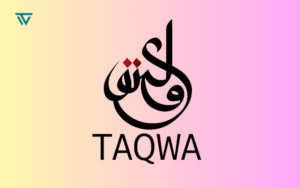Purification of the Soul in Islam and Path to Inner Peace

Human life is a constant quest for deep purpose and ultimate truth. Significantly, the success of this journey hinges on inner peace and spiritual purity. Islamic philosophy teaches that a human is more than just a physical body. Instead, we are a remarkable blend of three core elements: the Body, the Intellect, and the Soul (Ruh or Nafs). While we often focus on our physical and mental needs daily, we frequently neglect ‘Tazkiyatun Nafs’. However, achieving true human perfection and success requires a holistic approach. This includes the body, intellect, and especially the purification of the soul in Islam. Indeed, this integrated refinement is key.
The soul’s, or Ruh’s, nature remains mysterious. Because our understanding is limited, Almighty Allah explains in the Holy Quran:
وَيَسْأَلُونَكَ عَنِ الرُّوحِ ۖ قُلِ الرُّوحُ مِنْ أَمْرِ رَبِّي وَمَا أُوتِيتُم مِّنَ الْعِلْمِ إِلَّا قَلِيلًا
“And they ask you about the Ruh. Say, ‘The Ruh is a matter from my Lord, and you have been given little knowledge about it.’”
[Surah Bani Israel, Verse 85]
Consequently, this verse clarifies that humans cannot fully grasp the Ruh’s true essence (Haqiqat). It operates directly under Allah’s command. However, revelation provides knowledge about its functions, states, and purification path. Often, ‘Ruh’ and ‘Nafs’ describe different aspects of the same soul. While the Ruh keeps a person alive, the ‘Aql’ (intellect) isn’t always active, such as during childhood or insanity. These three elements together form a complete human. Therefore, self-purification goes beyond external actions. It is a holistic process, refining the body, intellect, and soul simultaneously.
To achieve this holistic refinement, Islam offers a complete code of life based on three pillars: Islam, Iman, and Ihsan. Importantly, these pillars guide the purification of our body, intellect, and soul. Thus, the entire journey of the purification of the soul in Islam rests upon these foundations.
Islam: External Purity and Refinement of Actions
‘Islam’ represents the first, foundational level of self-purification. Literally, Islam means submission. Technically, it involves externally submitting to Allah’s commands through physical actions. For instance, in the famous Hadith of Jibril, the Messenger of Allah (peace be upon him) defined Islam:
“Islam is to testify that there is no true deity but Allah and that Muhammad (peace be upon him) is the Messenger of Allah; to establish Salah, pay Zakat, fast in Ramadan, and perform Hajj if you can reach the House.”
(Sahih Muslim Hadith: 22)
Crucially, these five pillars are not just rituals. Instead, each pillar provides a powerful way to purify the body and one’s external life.
- Shahada (Testimony): This declaration frees us from darkness, guiding our actions toward monotheism.
- Salah (Prayer): Salah acts as a shield, distinguishing believers and protecting them from evil. Furthermore, it cleanses minor sins daily.
- Zakat (Charity): Zakat purifies wealth from stinginess. It also aids in purifying heart Islam by removing greed and pride, thereby fostering a healthy society.
- Siyam (Fasting): Ramadan’s fast teaches ‘Taqwa’ (God-consciousness). Additionally, it disciplines the body and guards the soul.
- Hajj (Pilgrimage): Hajj uniquely blends physical and financial worship. As a symbol of unity, it purifies pilgrims, leaving them sinless.
Thus, Islam provides a sacred framework for our external lives.
Iman: Intellectual Purity and Refinement of Thought
Next, ‘Iman’ (Faith) is the second level, focusing on purifying the ‘Aql’ or intellect. Iman isn’t blind faith; rather, it is a deep conviction built on knowledge and reason. It frees the mind from superstition, ignorance, and materialism. The Hadith of Jibril defines Iman as:
“Iman is to believe in Allah, His Angels, His Books, His Messengers, the Last Day, and in the Divine Decree (Tqdeer), its good and bad.”
(Sahih Muslim Hadith: 8)
These six pillars forge a clear worldview, thereby purifying the intellect.
- Belief in Allah: Protects against atheism.
- Belief in Angels: Acknowledges the unseen, fostering humility.
- Belief in Books: Establishes divine guidance as the standard.
- Belief in Messengers: Offers true role models.
- Belief in the Hereafter: Gives life purpose and ensures accountability.
- Belief in Divine Decree: Teaches acceptance, easing anxiety.
Indeed, an intellect without Iman is lost. Allah describes the disbelievers:
مَثَلُ ٱلَّذِينَ كَفَرُوا۟ كَمَثَلِ ٱلَّذِى يَنْعِقُ بِمَا لَا يَسْمَعُ إِلَّا دُعَآءًۭ وَنِدَآءًۭ ۚ صُمٌّۭ بُكْمٌ عُمْىٌۭ فَهُمْ لَا يَعْقِلُونَ
“The example of those who disbelieve is like that of one who shouts to that which hears nothing but calls and cries. Deaf, dumb, and blind – so they do not understand.”
[Surah Al-Baqarah, Verse 171]
Therefore, Iman provides the light that makes the intellect truly wise. This intellectual clarity is vital for the purification of the soul in Islam.
Ihsan: Spiritual Purity and Refinement of the Heart
Finally, ‘Ihsan’ represents the highest level, aiming for spiritual purity by refining the heart or Ruh. Ihsan is the very spirit of worship. It arises when Islam (actions) and Iman (belief) merge deep within the heart. The Hadith of Jibril defines it:
“Ihsan is to worship Allah as if you see Him; and if you do not see Him, then (know that) He sees you.”
(Sahih Muslim Hadith: 9)
This feeling, ‘Muraqaba,’ means constant divine awareness. Consequently, a person with Ihsan acts solely for Allah. They avoid sin even in private, knowing Allah watches. Ihsan focuses on purifying heart Islam by removing diseases like pride and envy. This represents the core of the purification of the soul in Islam.
The Three States of the Nafs and the Steps of Self-Purification
The Quran explains that the soul passes through three main states on its journey. This transformation is the process of the purification of the soul in Islam.
Nafs al-Ammarah (The Soul Prone to Evil)
This is the lowest state. Here, the soul constantly pushes towards evil, making one a slave to desires without remorse.
Prophet Yusuf (AS) sought refuge from this:
وَمَآ أُبَرِّئُ نَفْسِىٓ ۚ إِنَّ ٱلنَّفْسَ لَأَمَّارَةٌۢ بِٱلسُّوٓءِ إِلَّا مَا رَحِمَ رَبِّىٓ
“And I do not acquit myself. Indeed, the soul is a persistent enjoiner of evil, except those upon whom my Lord has mercy.”
[Surah Yusuf, Verse 53]
Moving beyond this requires knowledge, repentance, and struggle (Mujahada).
Nafs al-Lawwamah (The Self-Reproaching Soul)
This is a key step. In this stage, the soul feels intense remorse after sinning; its conscience awakens. It constantly battles between good and evil.
Allah swears by this struggling soul:
وَلَآ أُقْسِمُ بِٱلنَّفْسِ ٱللَّوَّامَةِ
“And I swear by the self-reproaching soul.”
[Surah Al-Qiyamah, Verse 2]
To progress, one needs consistent worship, good companions, and self-assessment. This struggle is vital for purifying heart Islam.
Nafs al-Mutma’innah (The Serene Soul)
This is the highest, most desired state. Here, the soul finds true peace in obeying and remembering Allah. Its desires align with Allah’s will. It loves good and hates sin.
Allah calls this soul to Paradise:
يَـٰٓأَيَّتُهَا ٱلنَّفْسُ ٱلْمُطْمَئِنَّةُ ٱرْجِعِىٓ إِلَىٰ رَبِّكِ رَاضِيَةًۭ مَّرْضِيَّةًۭ فَٱدْخُلِى فِى عِبَـٰدِى وَٱدْخُلِى جَنَّتِى
“O serene soul! Return to your Lord, well-pleased and pleasing [to Him]. And enter among My [righteous] servants. And enter My Paradise.”
[Surah Al-Fajr, Verses 27-30]
Reaching this level involves complete trust (Tawakkul), constant remembrance (Zikr), and gratitude (Shukr). Achieving this state is a central aim of the purification of the soul in Islam.
Signs of Self-Purification
Certain signs show a person’s progress. As the heart purifies, positive changes appear.
Allah says:
إِنَّمَا ٱلْمُؤْمِنُونَ ٱلَّذِينَ إِذَا ذُكِرَ ٱللَّهُ وَجِلَتْ قُلُوبُهُمْ وَإِذَا تُلِيَتْ عَلَيْهِمْ ءَايَـٰتُهُۥ زَادَتْهُمْ إِيمَـٰنًۭا وَعَلَىٰ رَبِّهِمْ يَتَوَكَّلُونَ
“The believers are only those who, when Allah is mentioned, their hearts become fearful (with awe and love). And when His verses are recited to them, it increases them in faith; and upon their Lord they rely.”
[Surah Al-Anfal, Verse 2]
In addition, feeling sweetness in worship, hating sin, showing compassion, and detaching from worldly matters are also signs. Purifying heart Islam leads to these positive indicators. Ultimately, the purification of the soul in Islam manifests in these tangible ways.
In Conclusion
In conclusion, self-purification (Tazkiya) is not a single event but a lifelong effort. We achieve it by integrating Islam, Iman, and Ihsan. The main goal is to rise from the ‘Nafs al-Ammarah’ to the ‘Nafs al-Mutma’innah’. This noble yet difficult journey requires knowledge, patience, constant effort, and, crucially, Allah’s mercy. This comprehensive purification of the soul in Islam truly paves the path to success.
May Allah guide us all on this sacred path of self-purification and grant our hearts peace through His remembrance. Allahumma Ameen.







